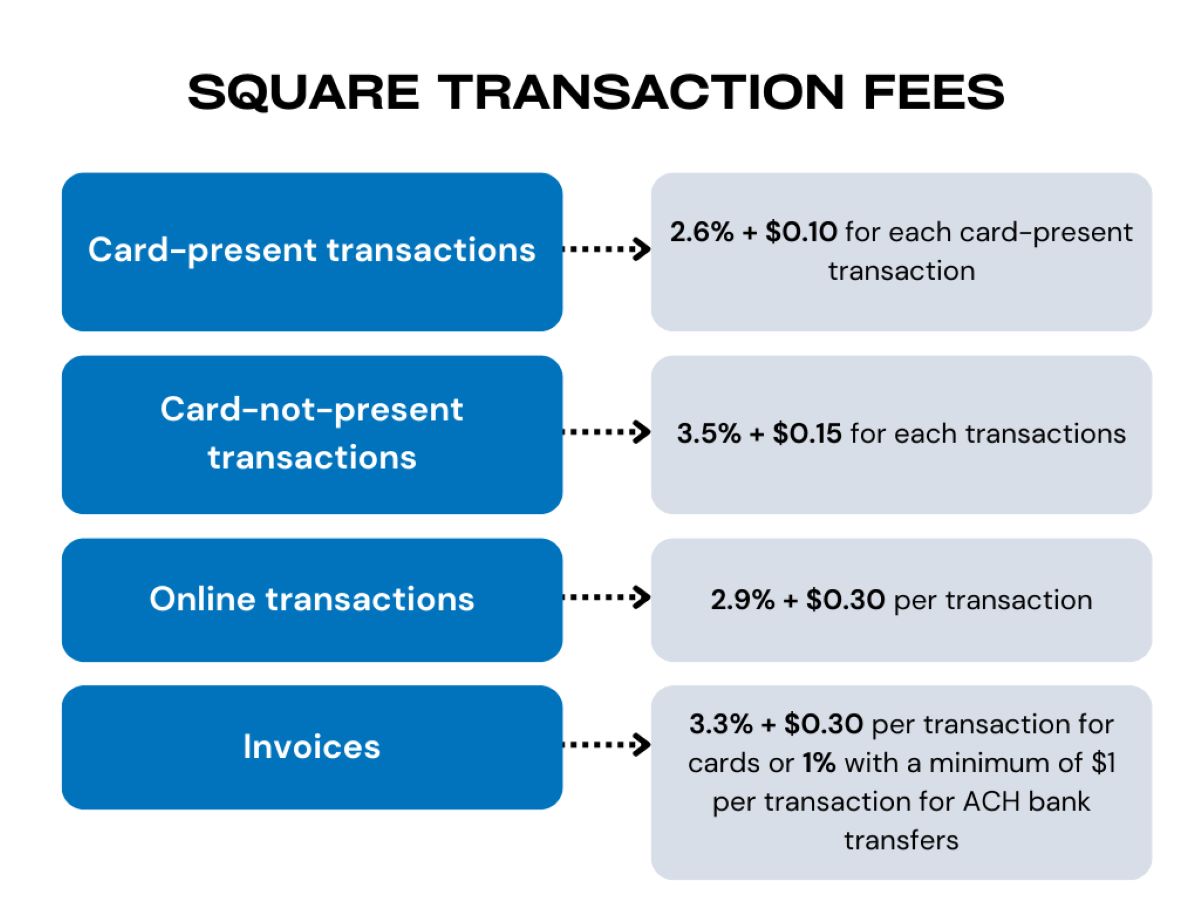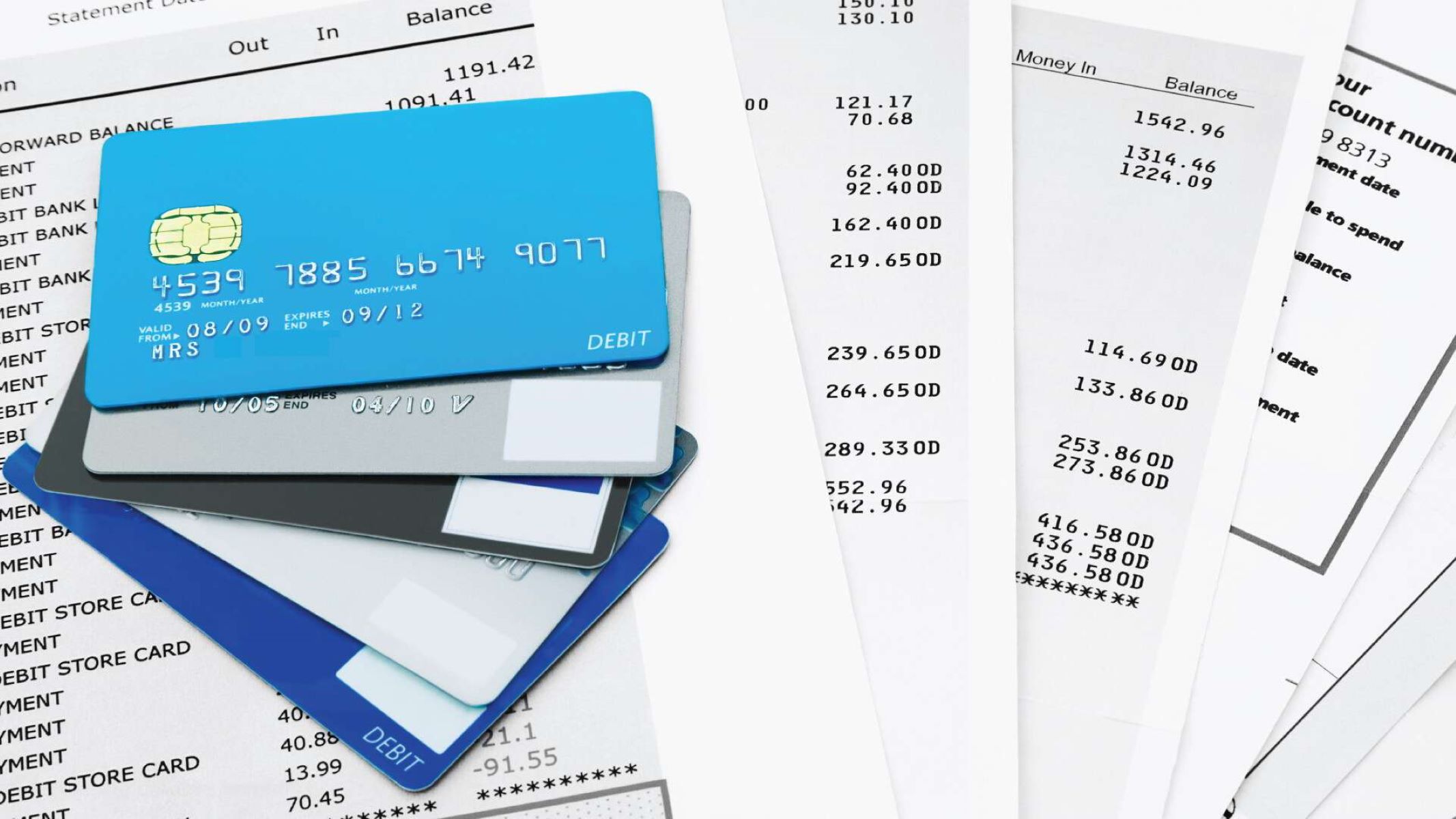

Finance
What Are The Square Merchant Fees?
Published: February 24, 2024
Learn about the Square merchant fees and how they impact your finances. Understand the costs and make informed financial decisions.
(Many of the links in this article redirect to a specific reviewed product. Your purchase of these products through affiliate links helps to generate commission for LiveWell, at no extra cost. Learn more)
Table of Contents
Introduction
Welcome to the world of Square, where small businesses and merchants can seamlessly process payments and manage their operations with ease. Square has revolutionized the way transactions are conducted, offering a range of services that cater to the diverse needs of modern businesses. However, as with any payment processing service, it's essential to understand the associated fees to make informed decisions and optimize financial strategies.
In this comprehensive guide, we will delve into the realm of Square merchant fees, shedding light on the intricacies of transaction costs, payment processing fees, and additional charges. By the end of this journey, you will have a clear understanding of how Square's fee structure operates and valuable insights on how to minimize these expenses.
Whether you're a budding entrepreneur, a seasoned business owner, or simply curious about the financial aspects of payment processing, this exploration of Square merchant fees will equip you with the knowledge to navigate the world of digital transactions with confidence and clarity. Let's embark on this enlightening expedition into the realm of Square's fee framework, where transparency and empowerment await.
Understanding Square Merchant Fees
Before delving into the specifics of Square’s merchant fees, it’s crucial to grasp the fundamental components that constitute these charges. Square, as a payment processing platform, offers a range of services to facilitate seamless transactions for businesses of all sizes. However, the convenience and efficiency of these services come hand in hand with associated costs, which are essential to comprehend for effective financial management.
At the core of Square’s fee structure lies the concept of transparency and simplicity. Unlike traditional payment processors that often inundate merchants with complex fee schedules and hidden charges, Square adopts a straightforward approach, ensuring that its pricing is easily understandable and accessible to all users. This commitment to transparency is reflected in the comprehensiveness of the fee breakdown, enabling merchants to make informed decisions and accurately assess the impact of these expenses on their bottom line.
Furthermore, Square’s fee framework is designed to align with the diverse needs and preferences of its users. Whether you operate a brick-and-mortar store, an e-commerce platform, or a mobile business, Square offers tailored solutions that cater to your specific requirements. This inclusivity extends to its fee structure, where the pricing is optimized to accommodate various business models, ensuring that merchants receive fair and equitable treatment regardless of their operational scope.
By understanding the underlying principles and intentions behind Square’s merchant fees, you can navigate the financial landscape with confidence, leveraging the platform’s services while effectively managing the associated costs. This knowledge empowers you to make strategic decisions that optimize your financial resources and maximize the benefits of utilizing Square as your preferred payment processing partner.
Square Transaction Fees
When conducting business through Square, it’s essential to familiarize yourself with the various transaction fees that form an integral part of the platform’s pricing structure. Transaction fees are incurred with every sale or payment processed through Square, and understanding the nuances of these charges is vital for accurate financial planning and cost analysis.
One of the defining features of Square’s transaction fees is their simplicity and consistency. Unlike traditional payment processors that impose convoluted fee schedules and obscure additional charges, Square adopts a transparent and uniform approach to transaction pricing. This ensures that merchants can confidently anticipate and calculate their expenses without being caught off guard by unexpected costs.
The standard transaction fee for in-person payments processed through Square is a flat rate of 2.6% + 10 cents per transaction. This uncomplicated pricing model eliminates the complexities associated with tiered pricing structures and enables merchants to discern the exact cost of each transaction with ease. Whether you’re selling a low-cost item or processing a high-value sale, the transparency of Square’s transaction fees remains unwavering, fostering a sense of predictability and financial control.
For online and keyed-in transactions, the transaction fee is marginally higher, set at 2.9% + 30 cents per transaction. This slight variance in pricing reflects the diverse nature of modern business operations, accommodating the distinct requirements of e-commerce ventures and businesses that predominantly engage in remote sales. By maintaining a clear and consistent fee structure across different transaction types, Square affirms its commitment to equitable and accessible pricing for all merchants.
Understanding the intricacies of Square’s transaction fees empowers you to make informed decisions regarding your sales strategies, pricing models, and overall financial management. By leveraging this knowledge, you can optimize your transactional processes and mitigate unnecessary expenses, ultimately enhancing the profitability and sustainability of your business.
Square Payment Processing Fees
As a merchant utilizing Square’s comprehensive suite of payment processing services, it’s imperative to grasp the nuances of the platform’s payment processing fees. These charges are pivotal components of Square’s fee structure, encompassing the costs associated with securely and efficiently processing various forms of payments, ranging from credit and debit cards to digital wallets and mobile transactions.
The foundation of Square’s payment processing fees lies in its commitment to providing accessible and transparent pricing for merchants of all sizes and operational scopes. This dedication to clarity and fairness is exemplified in the consistent and comprehensible nature of the payment processing fees, empowering merchants to accurately assess their financial obligations and optimize their revenue streams.
For in-person card payments processed through Square, the payment processing fee is a flat rate of 2.6% of the transaction amount. This straightforward pricing model eliminates the complexities often associated with percentage-based fees, allowing merchants to confidently predict and manage their payment processing expenses. Additionally, the inclusion of a nominal fixed fee of 10 cents per transaction further enhances the predictability and control offered by Square’s payment processing fees.
When it comes to online and keyed-in card payments, the payment processing fee is marginally higher, set at 2.9% of the transaction amount. This slight variance in pricing reflects the evolving landscape of digital commerce and ensures that businesses engaging in e-commerce activities can benefit from equitable and competitive payment processing fees tailored to their specific operational requirements.
Moreover, Square’s payment processing fees extend beyond traditional card transactions to encompass a diverse array of payment methods, including digital wallets like Apple Pay and Google Pay. By embracing the multifaceted nature of modern payment preferences, Square reinforces its commitment to inclusivity and adaptability, providing merchants with the tools and flexibility to cater to the evolving needs of their customer base.
By comprehending the intricacies of Square’s payment processing fees, you can harness this knowledge to optimize your pricing strategies, streamline your financial planning, and enhance the overall efficiency of your payment processing operations. This understanding empowers you to make informed decisions that align with your business objectives, ultimately fostering sustainable growth and financial stability.
Additional Square Fees
While Square’s transparent and straightforward fee structure is designed to provide merchants with a clear understanding of their financial obligations, it’s important to be aware of additional fees that may apply in certain scenarios. These supplementary charges, although not pervasive, are integral to comprehensively evaluating the cost implications of utilizing Square’s services and can impact your overall financial planning and operational strategies.
One notable additional fee is the charge associated with instant transfers, which enables merchants to swiftly access their funds. While standard transfers are typically processed within one to two business days at no extra cost, opting for an instant transfer incurs a fee of 1.5% of the transfer amount. This expedited service can be advantageous in situations where immediate access to funds is paramount, such as managing cash flow or seizing time-sensitive business opportunities.
Another supplementary fee to consider is the charge for chargebacks, which occurs when a customer disputes a transaction. In the event of a chargeback, Square imposes a fee of $25 to cover the costs associated with managing the dispute process. While chargebacks are an inevitable aspect of conducting business, implementing robust customer service practices and transparent transaction policies can mitigate the occurrence of disputes and minimize the impact of chargeback fees on your bottom line.
It’s also essential to be mindful of the potential for incidental fees related to exceptional circumstances or specialized services. For instance, if you utilize Square’s services for international transactions, you may encounter foreign transaction fees, which are contingent on the specific terms and conditions outlined by Square. Similarly, if you require customized solutions or advanced features that fall outside the scope of standard offerings, there may be associated fees commensurate with the added value and complexity of these services.
By proactively acquainting yourself with these additional Square fees, you can integrate them into your financial projections and operational contingencies, ensuring that your business is well-prepared to manage these expenses effectively. Moreover, this awareness empowers you to make informed decisions regarding the utilization of optional services and the implementation of risk mitigation strategies, ultimately fortifying the financial resilience and agility of your enterprise.
How to Lower Square Merchant Fees
While Square’s fee structure is designed to be transparent and competitive, there are several proactive strategies that merchants can employ to optimize their cost-effectiveness and lower their overall Square merchant fees. By leveraging these approaches, businesses can maximize their revenue streams and enhance their financial efficiency while benefiting from the convenience and reliability of Square’s payment processing services.
One effective method to lower Square merchant fees is to encourage customers to use payment methods with lower processing costs. For instance, debit card transactions typically incur lower fees than credit card payments. By promoting and incentivizing debit card usage, such as offering discounts or rewards for debit transactions, merchants can steer their customers towards cost-effective payment methods, thereby reducing their overall processing expenses.
Optimizing transaction methods and frequencies can also contribute to fee reduction. Consolidating smaller transactions into larger ones whenever feasible can minimize the impact of fixed transaction fees, ultimately lowering the average cost per transaction. Additionally, encouraging recurring or subscription-based payments can enhance predictability and stability in revenue streams while potentially qualifying for specialized pricing that aligns with these transaction models.
Implementing best practices for fraud prevention and risk management can mitigate the occurrence of chargebacks, which are not only disruptive to business operations but also incur additional fees. By adopting stringent security measures, verifying customer identities, and maintaining transparent transaction records, merchants can fortify their defenses against fraudulent activities and minimize the financial repercussions of chargebacks.
Furthermore, regularly reviewing and optimizing pricing models and product/service offerings can yield cost-saving opportunities. By strategically adjusting pricing structures, bundling products or services, and identifying areas for operational efficiency, merchants can enhance their profitability and offset the impact of processing fees on their margins.
Engaging with Square’s customer support and exploring available resources can also provide valuable insights and assistance in navigating fee optimization. Square’s support team can offer guidance on leveraging the platform’s features and tools to streamline operations and maximize cost-effectiveness, ensuring that merchants are equipped with the knowledge and support to make informed decisions that align with their financial objectives.
By embracing these proactive measures and integrating fee optimization into your operational strategies, you can effectively lower your Square merchant fees while fortifying the financial resilience and sustainability of your business. This proactive approach not only enhances cost-effectiveness but also positions your enterprise for long-term financial success in an increasingly competitive and dynamic marketplace.
Conclusion
Embarking on the journey of understanding Square’s merchant fees has unveiled a realm of transparency, simplicity, and strategic financial management. As we conclude this exploration, it’s evident that Square’s commitment to accessible and comprehensible pricing empowers merchants to navigate the complexities of payment processing with confidence and clarity.
By comprehending the intricacies of Square’s fee structure, including transaction fees, payment processing fees, and additional charges, businesses can make informed decisions that optimize their financial resources and bolster their revenue streams. The transparency and consistency of Square’s pricing model foster predictability and control, enabling merchants to anticipate and manage their expenses with precision.
Moreover, the proactive strategies for lowering Square merchant fees have illuminated the path to enhanced cost-effectiveness and financial efficiency. By incentivizing cost-effective payment methods, optimizing transaction frequencies, and implementing robust risk management practices, businesses can mitigate expenses and maximize their profitability while leveraging the myriad benefits of Square’s payment processing services.
As the landscape of commerce continues to evolve, Square remains a steadfast ally for merchants, offering a suite of solutions tailored to diverse business models and operational needs. The synergy of transparent pricing, innovative tools, and dedicated support empowers businesses to thrive in an ever-changing marketplace, positioning them for sustained success and growth.
In essence, the journey through Square’s merchant fees transcends mere financial comprehension; it embodies a narrative of empowerment, resilience, and strategic foresight. By embracing the knowledge and insights garnered from this exploration, merchants can chart a course towards financial prosperity and operational excellence, leveraging Square as a trusted partner in their quest for success.
As you navigate the realm of digital transactions and financial management, may the wisdom gained from this journey serve as a beacon of empowerment, guiding you towards prudent decisions, optimized resources, and enduring prosperity. Embrace the clarity, leverage the tools, and embark on your path with confidence, knowing that Square stands as a stalwart ally in your pursuit of financial mastery.














